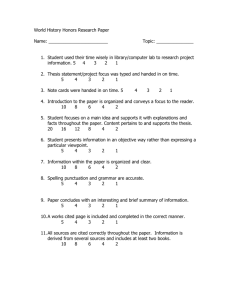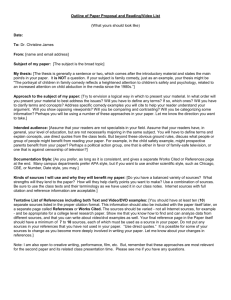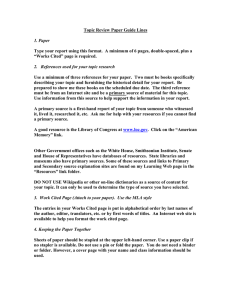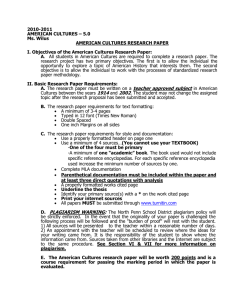Writing a Paper with Outside Sources
advertisement
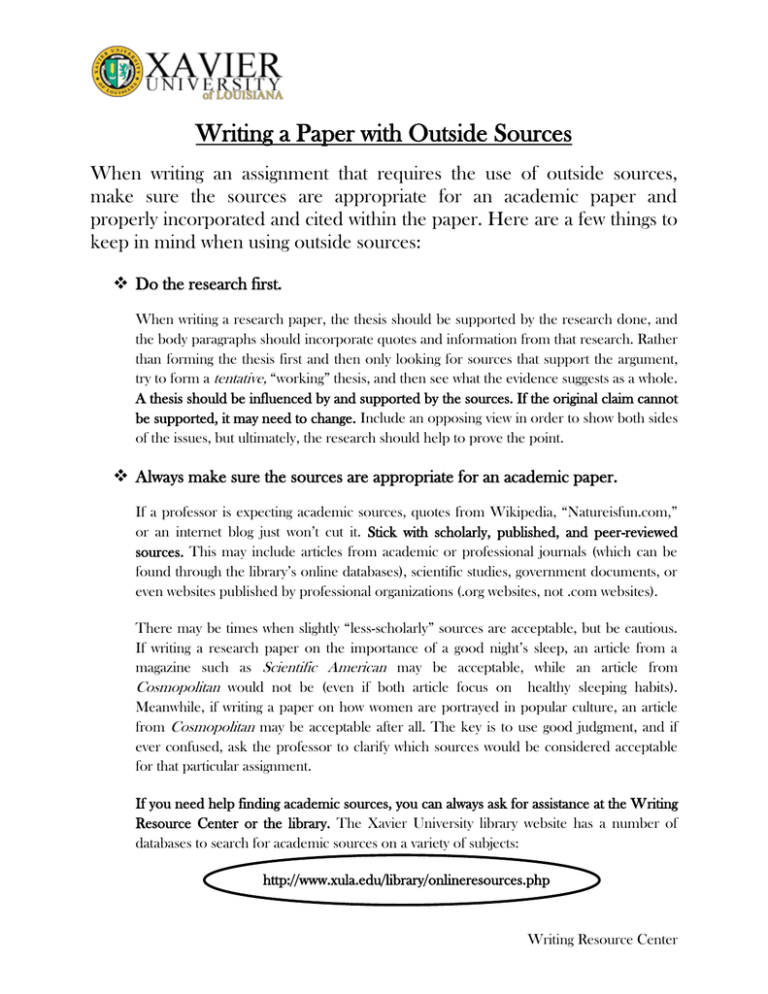
Writing a Paper with Outside Sources When writing an assignment that requires the use of outside sources, make sure the sources are appropriate for an academic paper and properly incorporated and cited within the paper. Here are a few things to keep in mind when using outside sources: Do the research first. When writing a research paper, the thesis should be supported by the research done, and the body paragraphs should incorporate quotes and information from that research. Rather than forming the thesis first and then only looking for sources that support the argument, try to form a tentative, “working” thesis, and then see what the evidence suggests as a whole. A thesis should be influenced by and supported by the sources. If the original claim cannot be supported, it may need to change. Include an opposing view in order to show both sides of the issues, but ultimately, the research should help to prove the point. Always make sure the sources are appropriate for an academic paper. If a professor is expecting academic sources, quotes from Wikipedia, “Natureisfun.com,” or an internet blog just won’t cut it. Stick with scholarly, published, and peer-reviewed sources. This may include articles from academic or professional journals (which can be found through the library’s online databases), scientific studies, government documents, or even websites published by professional organizations (.org websites, not .com websites). There may be times when slightly “less-scholarly” sources are acceptable, but be cautious. If writing a research paper on the importance of a good night’s sleep, an article from a magazine such as Scientific American may be acceptable, while an article from Cosmopolitan would not be (even if both article focus on healthy sleeping habits). Meanwhile, if writing a paper on how women are portrayed in popular culture, an article from Cosmopolitan may be acceptable after all. The key is to use good judgment, and if ever confused, ask the professor to clarify which sources would be considered acceptable for that particular assignment. If you need help finding academic sources, you can always ask for assistance at the Writing Resource Center or the library. The Xavier University library website has a number of databases to search for academic sources on a variety of subjects: http://www.xula.edu/library/onlineresources.php Writing Resource Center Make sure all sources are cited properly, using MLA, APA, or whatever citation format the professor has specified. Having incorrectly cited sources may be considered plagiarism! Whenever quoting or paraphrasing something from research within the paper, make sure to use an in-text citation. In addition, make sure to include a properly formatted Works Cited page, which lists every source used, at the end of the paper. Information on how to properly cite sources can be found in the handbook Rules for Writers by Diana Hacker, and online. Of course, always come to WRC for further assistance. Incorporate the sources; don’t copy them. Make sure to not simply summarize or restate the information uncovered in the research. Even when writing a paper that incorporates outside sources, be expected to demonstrate an understanding of the topic by stating things in your own words, only using the research to support your own argument and your own conclusion. Writing Resource Center
